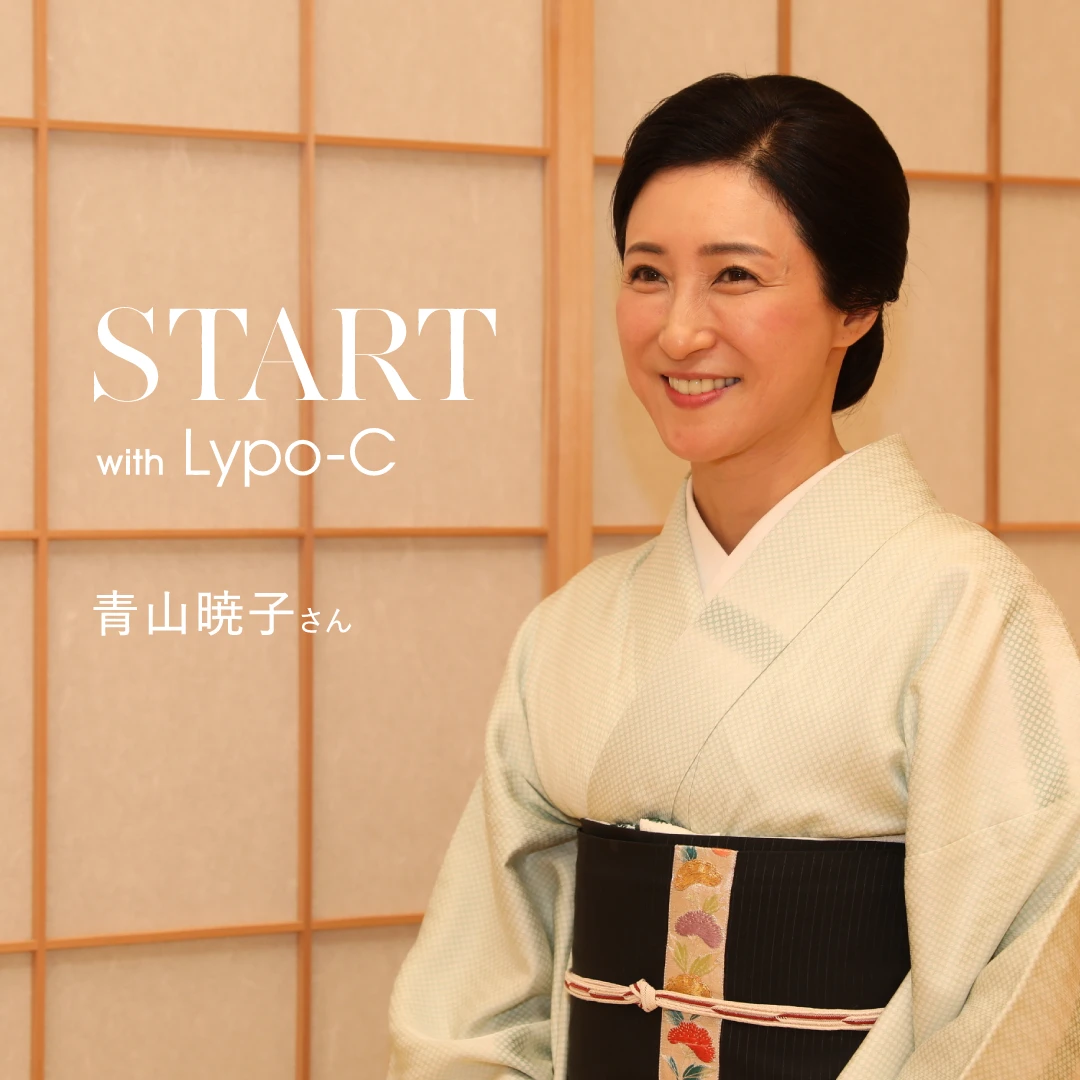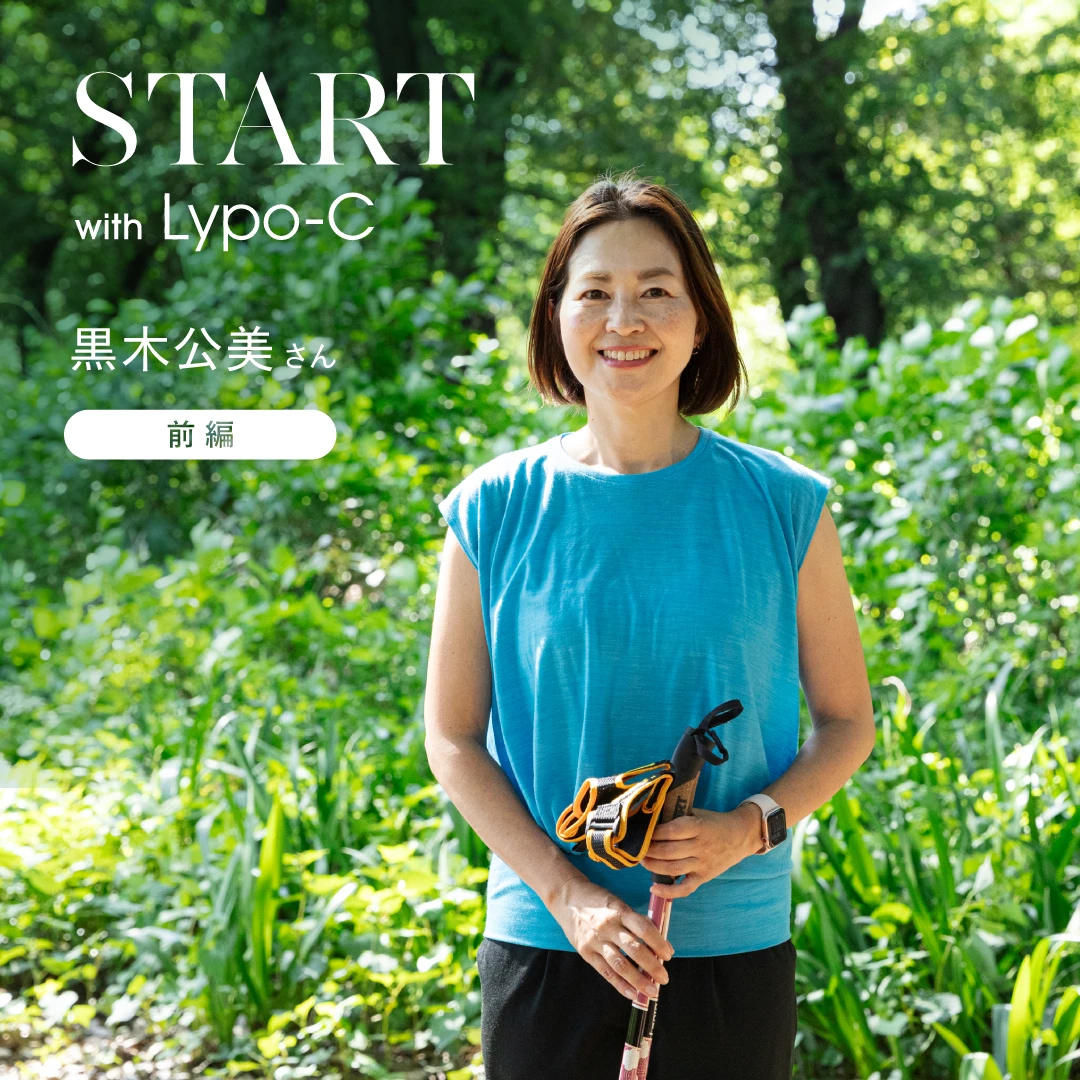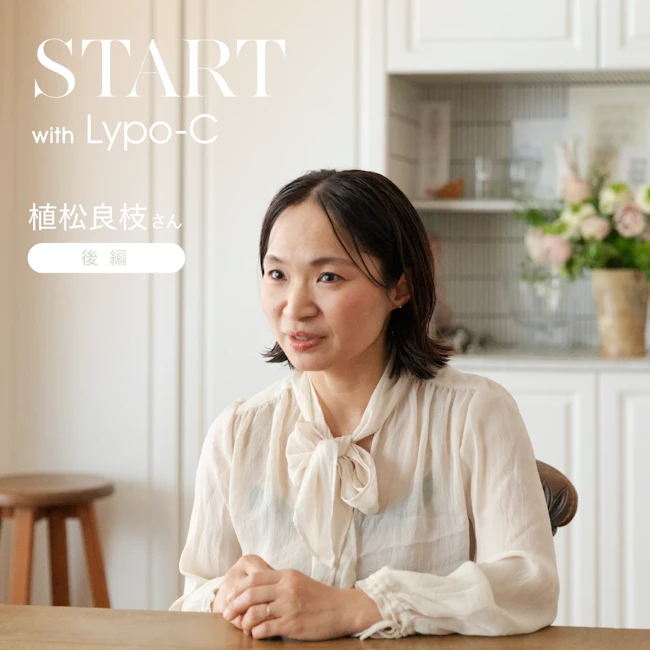
START with Lypo-C (Part 2)
SUMMARY
- Eat seasonal vegetables and get plenty of sleep.
- Listen to your body and follow what it wants
- ・New shop and cooking class space opened
This is a series of articles that introduces Lypo-C to your loved ones. We asked Kim Na-rae, who appeared in Vol. 1, "Who would you recommend Lypo-C to?" She introduced us to Yoshie Uematsu, a cooking researcher. In the second part, we talked to her about how she decided to become a chef and about her new project that has just begun.
Read the first part of the article about Yoshie Uematsuhere
I want to be a culinary expert
Advance on the path of cooking!
Yoshie Uematsu, a cooking researcher, has been suggesting dishes that will make you want to try cooking, whether you are a cooking enthusiast, someone struggling with what to cook every day, or a beginner, by arranging dishes from around the world so that they are easy to make in Japanese homes while still maintaining their authentic flavors, or by modernizing traditional dishes by combining ingredients and presenting them in a more modern way.
"I've loved playing house since I was a child. I grew up in a self-employed household, so I decided that I wouldn't get a job and would become a culinary researcher. So I started by working part-time in the editorial department of a cooking magazine to gain more knowledge. I also wanted to put my cooking into practice, so I also worked part-time at a Vietnamese restaurant in the evenings."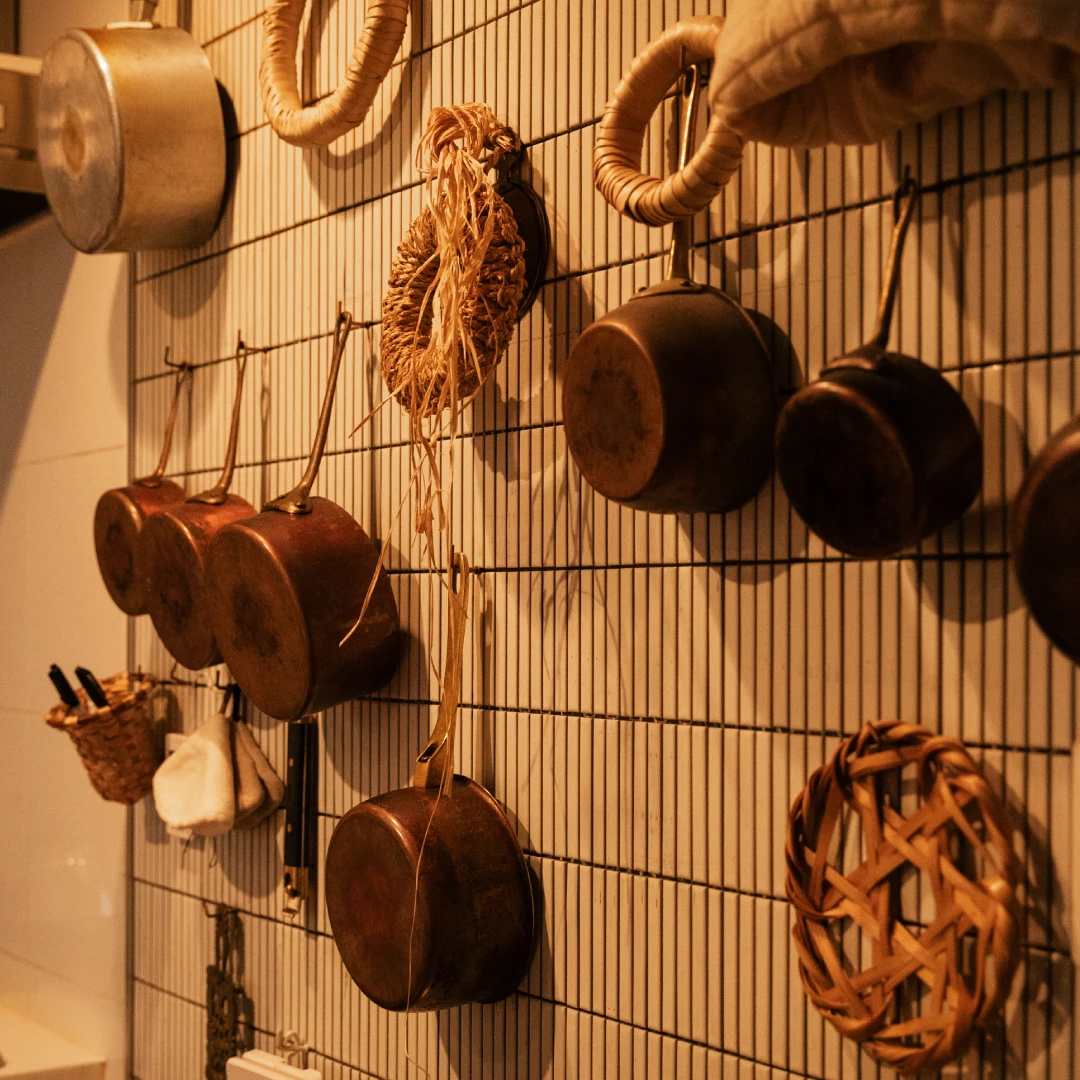
After working part-time for about three years, he decided to work in the restaurant business full-time. As a leader, he was busy planning the lunch and sweets menus, handling interviews, and so on.
"It was a big restaurant, and I wanted to become more knowledgeable about ingredients, so I just put all my effort into it. I even volunteered to try catering. Once I felt I had accomplished everything I could, I went independent, and started approaching publishers and getting work as a culinary expert."
Uematsu-san always looks forward and follows his own path. Eventually, he renovated his family's warehouse and started a cooking school. There must have been some hard times, but when you see Uematsu-san smiling, it seems like everything is going well because of the positive energy he has.
"I'm currently supervising the menus of companies and restaurants, and I also enjoy providing recipes for books, magazines, and the web. For example, I enjoy coming up with recipes for a theme like 'nametake mushrooms.' I get more excited when there are restrictions."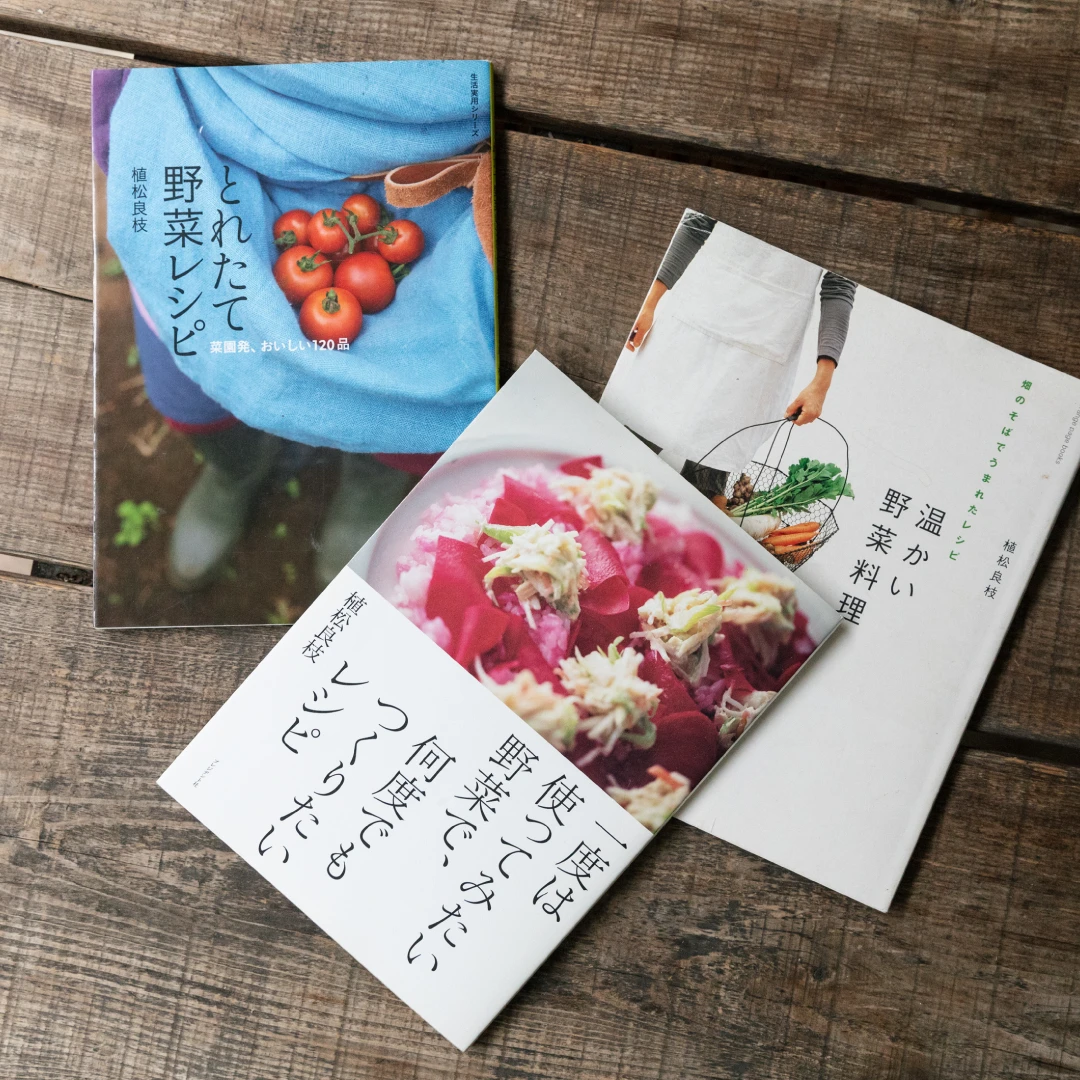
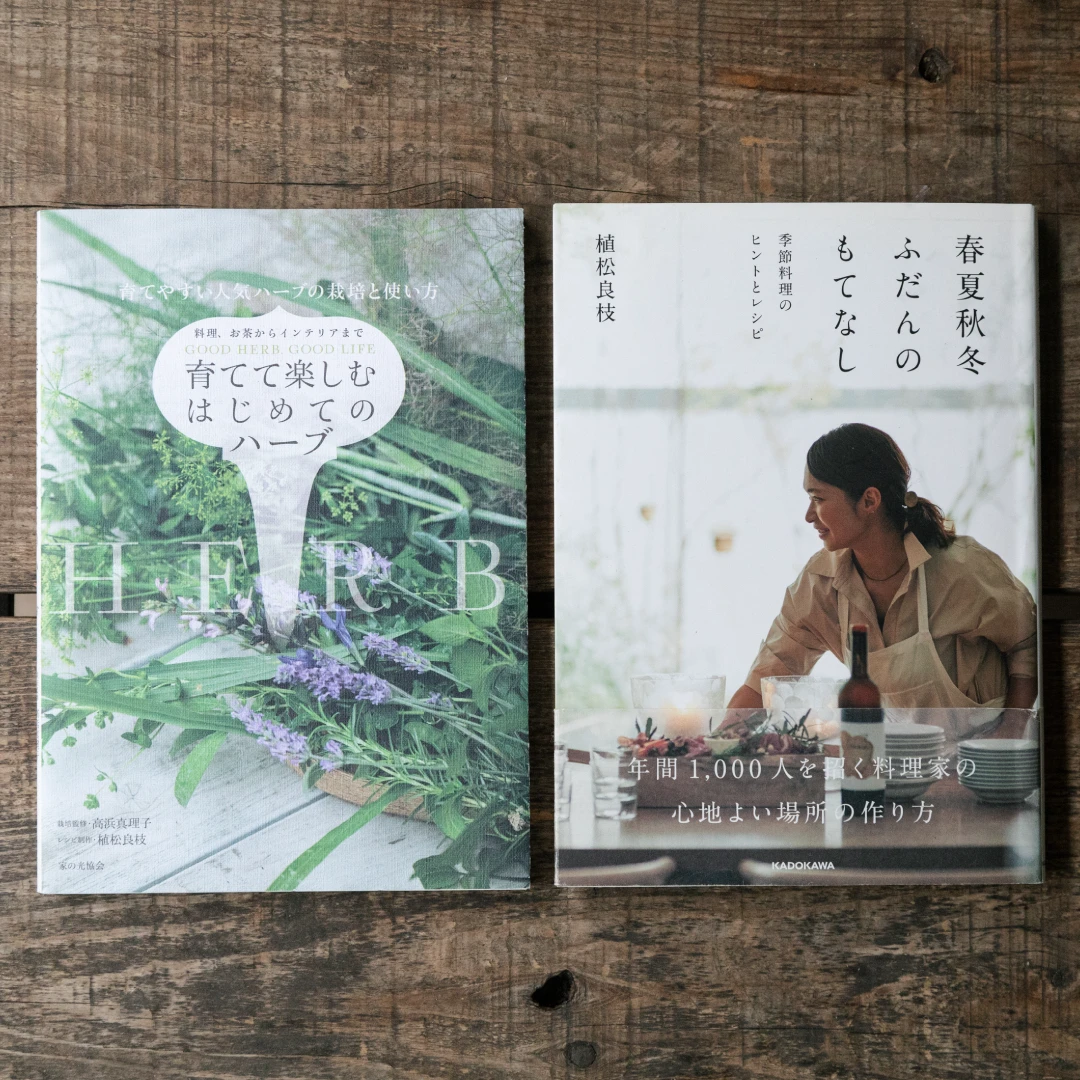
Uematsu, who values "home cooking", cooks in a generous and tolerant style.
"I think that if you want to enjoy sublime cuisine, you should go to a restaurant and have a chef make it for you. The job of a culinary expert is to come up with recipes that anyone can make at home. So I think it's great if people can adapt their recipes using their favorite ingredients and seasonings that they have at home. One thing I particularly tell people is to use 'seasonal ingredients.' They say that our bodies are made of what we eat, and if you continue to live a life where you eat seasonal foods, you will come to realize that the things you crave are what your body is craving."
The daily family dinner table
Be sure to incorporate "something blue"
The Uematsu family's meals always include a lot of vegetables.
"I try to incorporate green foods like leafy vegetables and wakame seaweed. I stew leafy vegetables like komatsuna and cabbage, or make soups with them. I also put chopped salted turnip leaves into my gyoza dumplings. My son likes wakame seaweed, so I always have dried seaweed on hand, but when it's fresh, I add it to soup or miso soup, or make shabu-shabu."
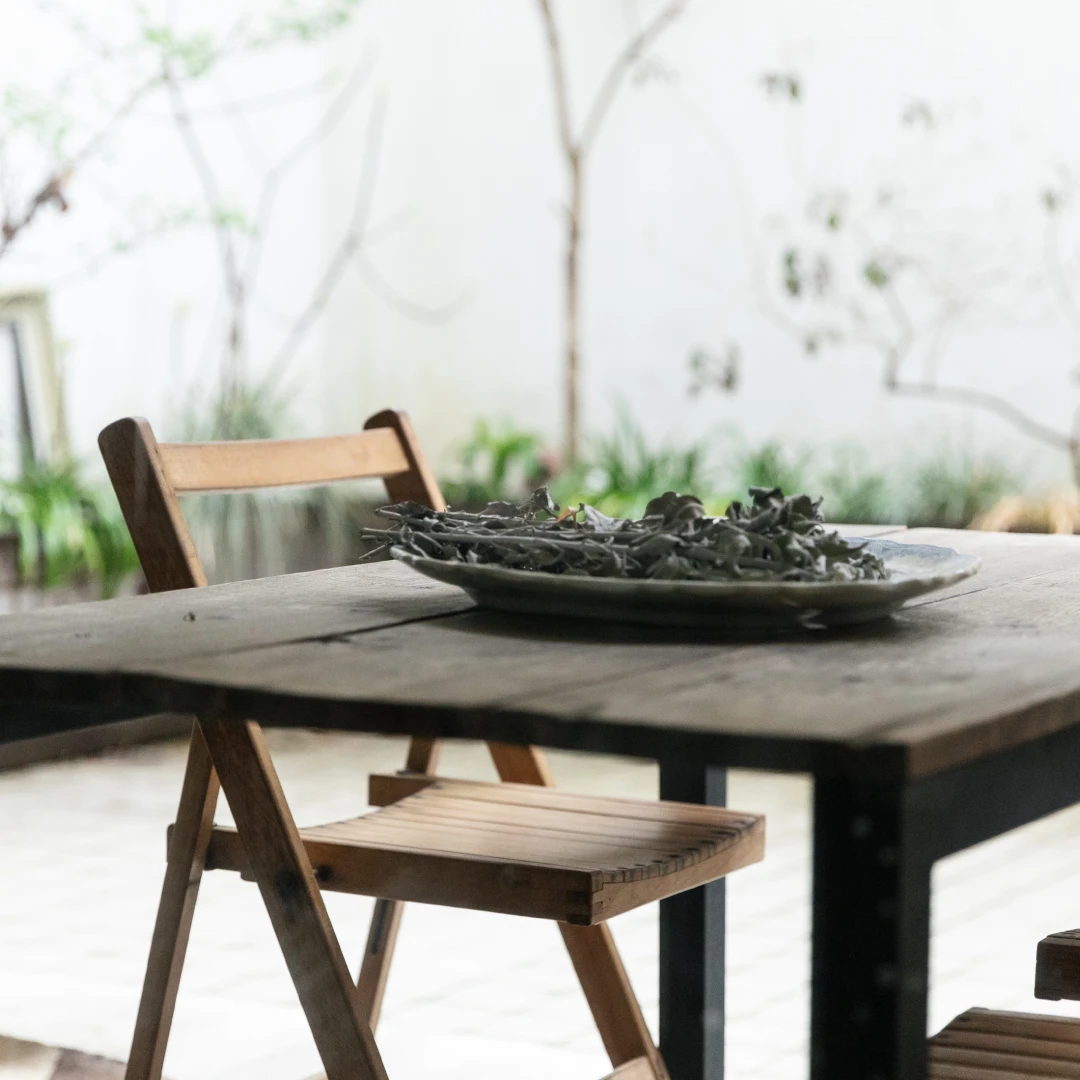
Uematsu also often incorporates various types of citrus fruits into his cooking.
"I also recommend buying a box of sudachi on my Instagram every year. Not only can you squeeze it into shochu or carbonated water, but you can also add it to grilled fish, mix it with amazake to make a lassi-like drink, or make a salad with pears and winter melon; it's so versatile. I also like how citrus fruits are linked to the seasons, such as sweet oranges and jabara in spring and summer, and yuzu and lemons in autumn and winter. Lypo-C, which has a salty taste like seawater, goes well with bitter citrus fruits, so I'd like to try combining it with the citrus fruits of each season."
When she or her family are unwell, a simple rice porridge is the standard meal.
"When you're feeling weak, it's easier to eat soupy foods. Soupy rice or porridge made with cold rice are good, as they're easy to make. I always keep Japanese-style dashi made with dried sardines and other ingredients stocked in the freezer, and for Chinese dashi I use a simple liquid dashi. The key is to add some ginger. And then, just get some sleep! Even when I'm tired, I can loosen up my body with a foam roller, soak in the bathtub, and then go straight to bed, and I'm back to normal by the next morning."
Uematsu-san also believes that it is especially important to keep your feet warm. He once had a cold and was returning to his parents' house, and while sitting on a train seat and sleeping, he was able to get warm by the heater under the seat, and by the time he got off the train, his cold had gone away!
"Eat plenty of seasonal vegetables and get plenty of sleep. If you do that on a daily basis, all you have to do is listen to your body and follow its instincts. I've never had any major health issues, and I can quickly get back on track when I feel tired or unwell."
New challenges in May
start!
In fact, she is currently in charge of directing the opening of a new cafe, as well as a new shop and cooking class space, and seems to be completely absorbed in preparing for these.
"After 20 years of running cooking classes from my home, perhaps it was time to move on to the next phase. I happened to come across a great space, and I'm supervising the menu and interior design of the cafe there, while also holding classes and events in the same facility. At the events, I'd like to try a variety of things, regardless of genre, such as tableware and clothing. I'm sure this is one of the busiest times of my life, but I feel like my daily Lypo-C habit has made me less tired. I'd like to continue."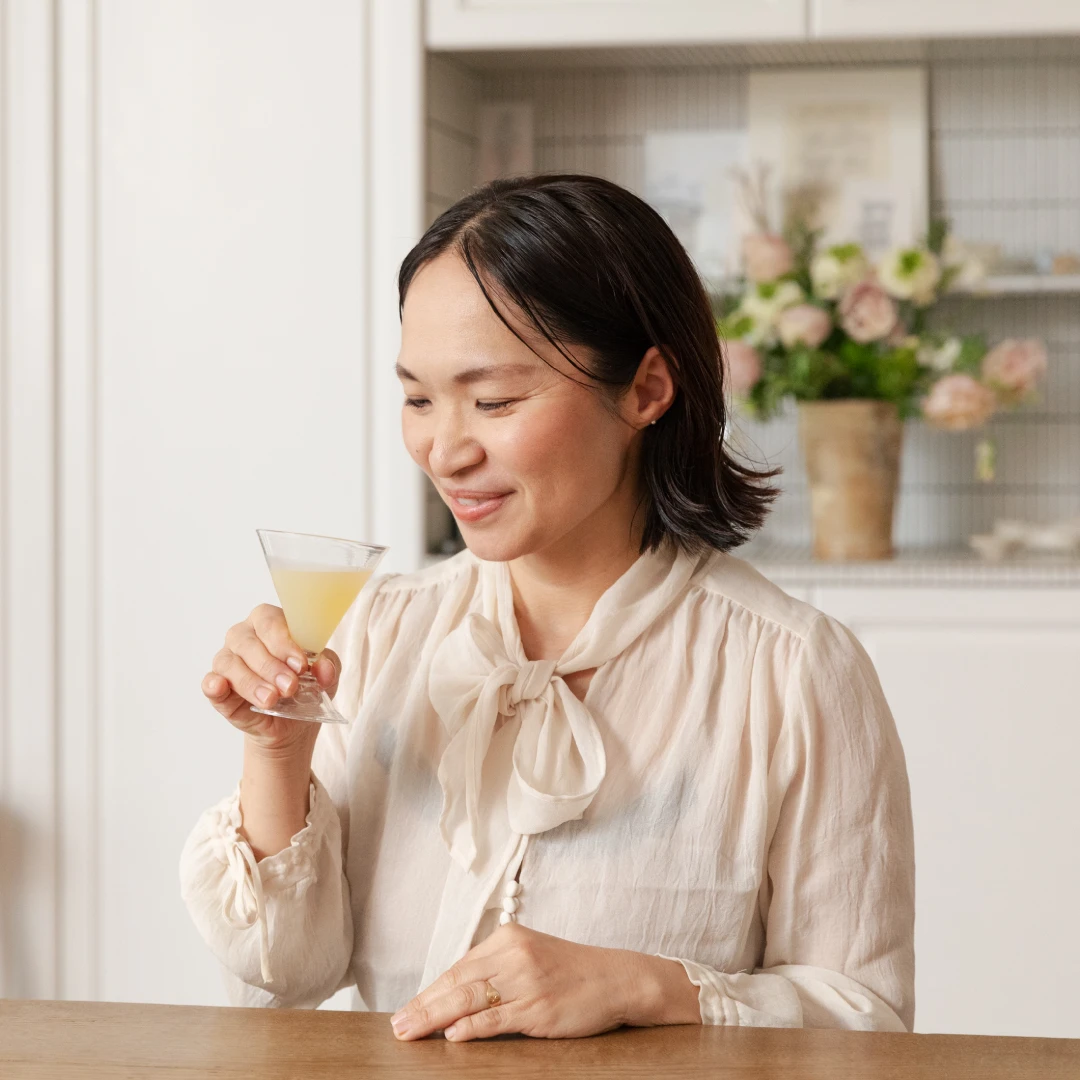
Despite his busy schedule, Uematsu remains full of energy. The fun parts of working towards what he wants to do seem to outweigh the difficulties.
"We named the cafe 'moderato on the green' with the hope that customers can take a momentary break from their busy days and relax. It is a type of tempo marking that means to walk at a moderate speed. The shop that will be set up in a corner of the lesson space is called 'etepapa'. It is a word that my son used to say a lot when he was a baby, and although it doesn't have any particular meaning, I thought that the cosmic sound was nice and I had been thinking about it for a long time. There is still a lot of work to be done before the opening, but I'm sure it will be a wonderful place. Just as Lypo-C supported us during busy days, we would like to develop it into a place where you can recharge your energy just by being in the space, a place that acts as a supplement for the mind."
Next to take over Lypo-C baton from Yoshie Uematsu is Nordic walking instructor Kimie Kuroki. We bring you her real testimonials after trying Lypo-C for a month.
profile
Yoshie Uematsu / Culinary researcher. In addition to running a cooking class, she is active in magazines, books, television, and the web. She also produces the Vietnamese restaurant Yoyonamu in Yoyogi Hachiman, and develops menus for companies and restaurants, including the cafe KOHORO on the 7th floor of the Hanshin Umeda main store.
Text: Shiori Fujii
Edited by Yuko Homma
Photo: Ryo Yonekura




.webp)

